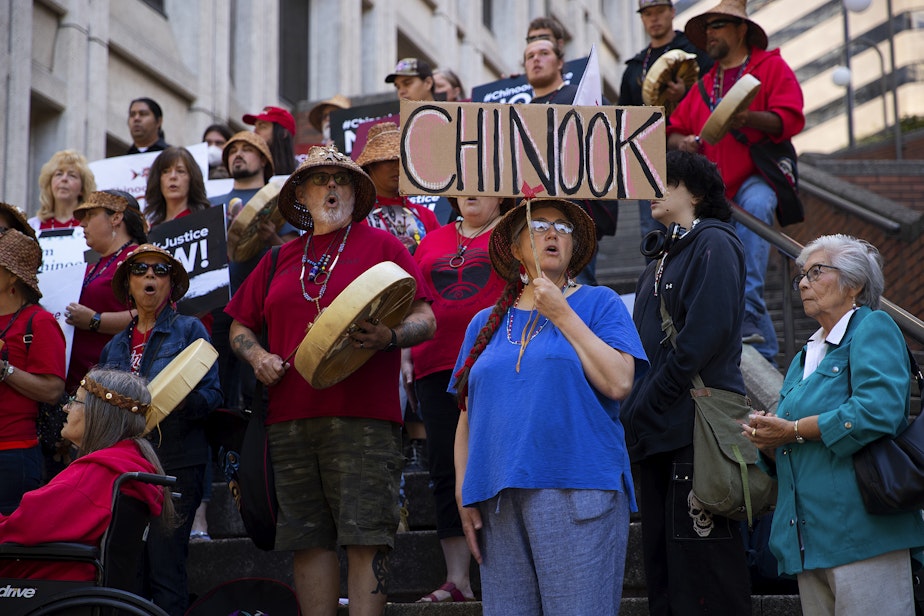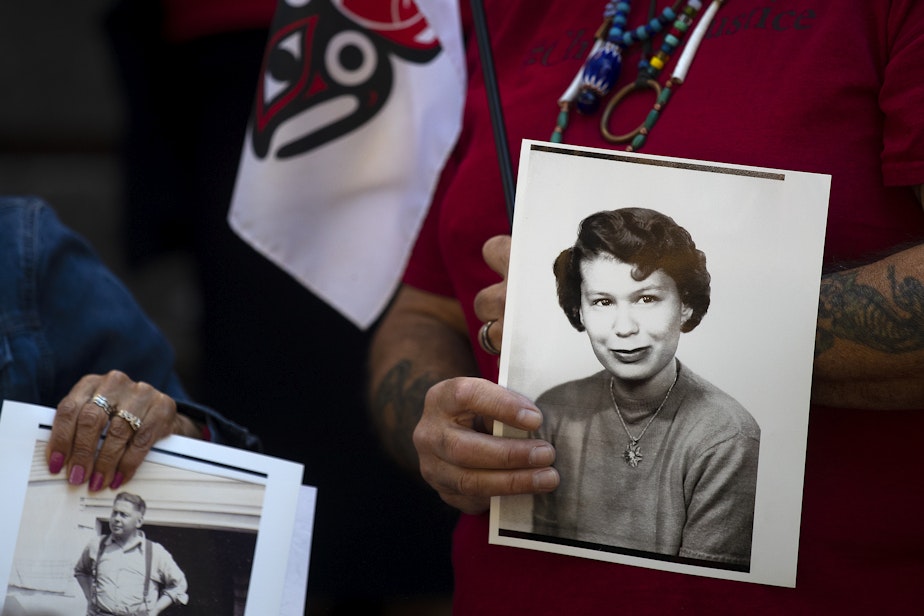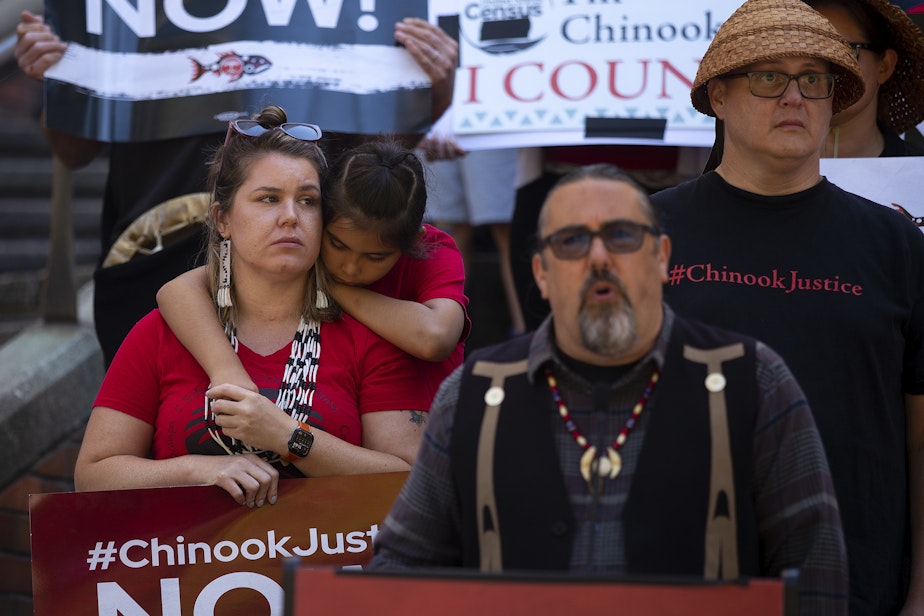Chinook Indian Nation members rally for federal recognition

Members of the Chinook Indian Nation rallied Monday on the steps of a federal building in Seattle to raise awareness for their long fight to get federal recognition.
Chairman Tony Johnson, whose tribal name is Naschio, said his great-great-grandfather and other leaders first hired lawyers to sue for their lands back in the 1890s.
Federal recognition would mean access to federal dollars for healthcare and housing for this group of tribes, which are based in Southwestern Washington, particularly Pacific County. The rally was the start of a campaign by Chinook leadership, they said, to pressure Washington Senator Patty Murray and Senator Maria Cantwell to use their influence in Congress to get the Chinook recognized.
For a brief time twenty years ago, the Clinton administration recognized the Chinook Indian Nation, but the Bush administration revoked that decision in 2002 after another Indigenous nation in Washington state, the Quinault, appealed to the Bureau of Indian Affairs.
Johnson said during a speech on Monday that the Chinook nation, which is made up of five tribes – the Cathlamet, Clatsop, Lower Chinook, Wahkaikum and Willapa, according to OPB – refused to sign a treaty that would force them to lose their land, and therefore was never moved to a reservation.
“That place where I drove from this morning with my wife and two of my five kids is the place where our sovereignty springs from,” Johnson said. “We are a sovereign nation, regardless of the government's confusion, and our sovereignty comes from the land and our ancestors.”
Johnson’s son Tahoma Johnson was there as well, and he said opportunities for work and housing in Pacific County are scarce. He lives in a trailer on someone else’s property, according to his father.

“That really bugs me because a recognized Chinook [nation] would have an opportunity to provide him housing,” Johnson said.
Rachel Cushman, the secretary-treasurer for the Chinook, said she was just 15 in 2002 when she heard the news of the Bush administration’s revocation of her tribe’s status. After crying with her mother, she still had to get on the bus and go to work – at the federal Bureau of Indian Affairs, where she was apprenticed to a fish biologist.
“I didn't want to go into a space that made me feel less than, because that's how I felt my whole life,” Cushman said. “I felt less than. And I was made to feel less than. I went into an office full of Native people feeling less than.”
Cantwell did not immediately respond to a request for comment. Zack DiGregorio, a spokesperson for Murray, said in a statement that she understands how important tribal recognition efforts are and "how critical it is that all voices involved be heard" but didn't commit to making any changes.
"She will continue to do her best to serve as a voice in the United States Senate for Washington’s Tribal governments and Tribal people,” DiGregorio said via email.

Sponsored
This story has been updated to include a statement from Sen. Patty Murray.




